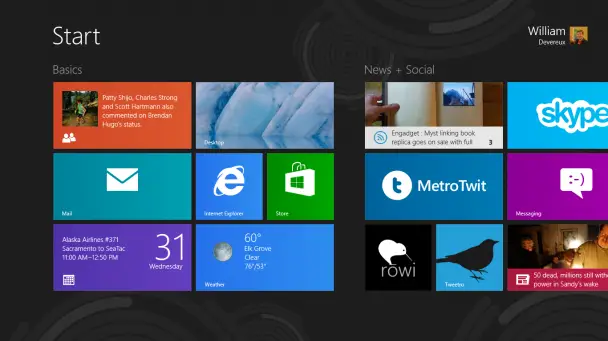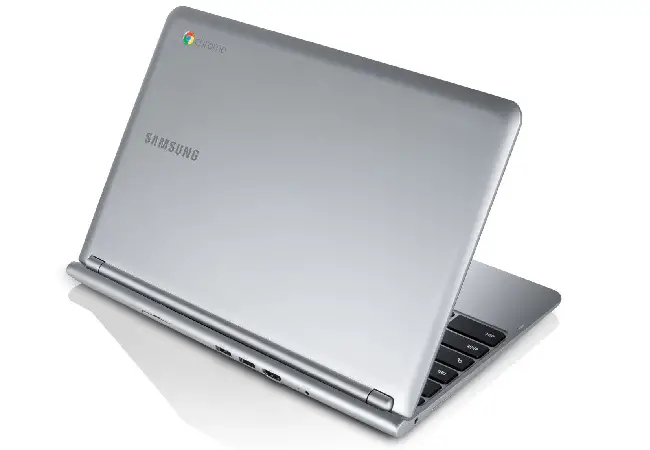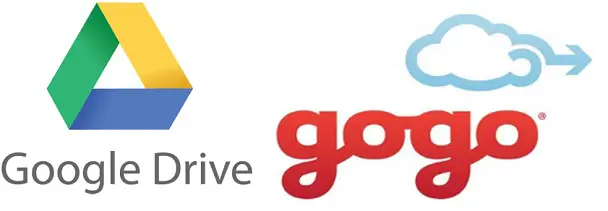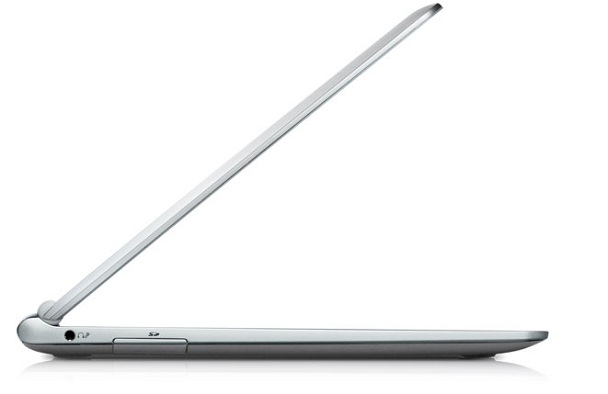Why I decided to get a Chromebook instead of a new Windows 8 PC
You may read this headline, and think that I’m crazy. And quite possibly I am. But in the midst of all the current Windows 8 hype that is happening right now, I’ve decided to get Samsung’s new $249 11.6-inch Chromebook – a cheap netbook that many people think runs an impaired, half-baked OS that requires always-on cloud connectivity in order to be half-way decent. $249 for a computer that won’t run Windows apps, that only has 16GB of on board storage, and that is essentially a glorified web browser.
Well, at least let me explain myself.
The Chromebook is practically free when you consider what comes with it.
Google is bundling 100GB of Google Drive cloud storage for two years with the new Samsung Chromebook. Regularly priced at $4.99/month, that’s a value of $119.76.
Google is also bundling twelve free sessions of Gogo Inflight Internet. Gogo’s cheapest in-air WiFi plan normally costs $14, so that’s a value of $168.
So basically, you’re getting $287.76 worth of services for $249, plus a free laptop. Granted, I don’t currently pay for extra Google Drive storage, and I have never purchased a WiFi pass on any flight. If I never bought the Chromebook, I probably wouldn’t either. But you just can’t deny that – mathematically speaking – this is a fantastic deal.
I already live in the Google cloud.
As a longtime Android user, and one of the first Gmail beta testers back in the day, I have long lived in the Google cloud. I keep track of my bank accounts and credit cards with Google Docs spreadsheets; every presentation I have ever given had an accompanying Google Docs slideshow; all word processing takes place in Google Docs. I use Google Calendar to keep track of Facebook events, birthdays, holidays, and my own personal schedule. I use Gmail to manage mail from five different email addresses. All photos I take are automatically uploaded to Picasa through the Google+ Instant Upload feature. My entire music library is available through Google Play Music. I use Google Voice on my computer just as much as I use my actual cell phone to place calls and send texts. Basically, my entire life is organized and accessible to me through Google.
Granted, there may be a rare time when I need access to the full Microsoft Office suite, but Chromebooks can actually do that, too. InstallFree Nexus with Microsoft Office is a great web app I found that remotely connects you to a computer that’s running the full versions of Microsoft Word, Excel, and Powerpoint – so anything that you can do in those programs on a regular Windows machine, you can do on a Chromebook. You can even open Office documents with that web apps directly from the Google Drive web interface.
And for those rare times when a website refuses to function because I’m not running Internet Explorer, Cloud Internet Explorer by Ericom is another web app that does the same thing.
For image editing, there are tons of great web app options, including the built-in web editor in Picasa. Third party web apps include PicMonkey, Pixlr Editor, and many more.
You actually can get stuff done when you’re offline in Chrome OS.
Google has developed offline versions of Gmail, Calendar, and Drive, so you can still work with emails, documents, etc., even when you’re not connected to the internet. The Amazon Kindle and Google Books web apps let you read books offline, and I imagine that Google is working on similar functionality for Google Play Magazines.
In fact, there’s an entire section in the Chrome Web Store dedicated to offline apps, and it includes everything from productivity apps to games. There are note taking apps, a secure shell, world clocks, Angry Birds, solitaire, news readers, The New York Times, and much, much more. There’s also a built-in media player for anything you’ve downloaded to your SSD or your SD card, along with a very basic native photo editor. As it turns out, you don’t have to be tethered to an internet connection all the time, after all.
I’m still waiting for Windows 8 PC prices to come down, and for the market to mature.

If you’re in our forums regularly, then you might have noticed my recent dilemma: I really like the idea of the Microsoft Surface RT, but if I’m going to get a Windows 8 PC, I don’t want Windows RT. The fact of the matter is this: I ultimately can’t replace the full Windows desktop with Windows RT or Chrome OS, because there will always be one or two things for which I need the full desktop. Video editing comes to mind, along with the need to root my Android phones and tablets. Even though I edit videos maybe twice a year, and I root Android devices maybe five or six times a year, I still need the full desktop in order to effectively accomplish these things. Therefore, when I buy a new Windows machine, it’s got to be running full Windows.
And right now, the market is just a bit overwhelming, and the prices are too high. For example, for my next Windows 8 machine, I want a touch screen, at least 128GB SSD, and 4GB of RAM. The idea of being able to convert it into a tablet also seems really cool. However, the closest thing that comes to that – which I’ve been able to find, at least – is the Lenovo Yoga 13, and at $1000, I think it’s a little pricey. (I’m also not sure that I like the idea of pressing down onto the keyboard when it’s in tablet mode.)
Cheaper laptops, however, either seem to not have a SSD, have fewer gigs of RAM, or don’t come with a touchscreen. Plus, the market is still saturated with old Windows 7 machines, and it’s a bit overwhelming to have to sort through all of those just find a few that do run Windows 8, but don’t meet my other criteria. In other words, I just have to wait for the market to mature.
This is why a Chromebook seems right to me.
My current Windows 7 PC was originally a Windows Vista PC, so that tells you how old it is. And I have a feeling that it has started its descent towards death. However, since I’ll be able to accomplish 99.99% of my daily computing tasks on my Chromebook, I will be able to safely keep my old Windows machine powered down most of the time, thereby extending its life indefinitely until I finally find a Windows 8 PC that I think is worthwhile for me. Essentially, I’ll only have to power up my current PC when I need to edit a video or root an Android device.
The idea of Windows 8 let’s-not-call-them-Metro apps is also really cool, but there are only a few thousand choices to pick from right now. I’m pretty sure that anything a Metro app can do right now, an Android app can do just as well – and probably even better. That’s because the new Windows OS just hasn’t matured yet, and app development is still such a new thing. Between the native apps on my Android tablet and the web apps on my Chromebook, I don’t have a feeling that I’ll be yearning for new Windows apps anytime soon.
And did I mention the cost? For $249, you get an 11.6-inch laptop that most reviews say is reminiscent of a Macbook Air, with a keyboard and trackpad that’s very comparable and just can’t be beat by similarly-priced Windows netbooks on the market right now. You also don’t have to purchase any extra anti-virus or office productivity software, because it’s built in already. And Google promises that the Chromebook will only get better and faster over time, as updates come automatically and frequently. (As a former CR-48 beta tester, I can vouch for this.)
For me, the Chromebook seems like the logical, right choice. Unlike Google’s new ad campaign, it might not be for everyone – especially if you’re a heavy gamer or video editor. But even then, it still might make a good second, living-room-couch computer.
Now, the waiting game begins. I ordered the machine on Amazon a week ago, and I still don’t have an estimated shipping date. That just goes to show how popular this little machine is turning out to be.







